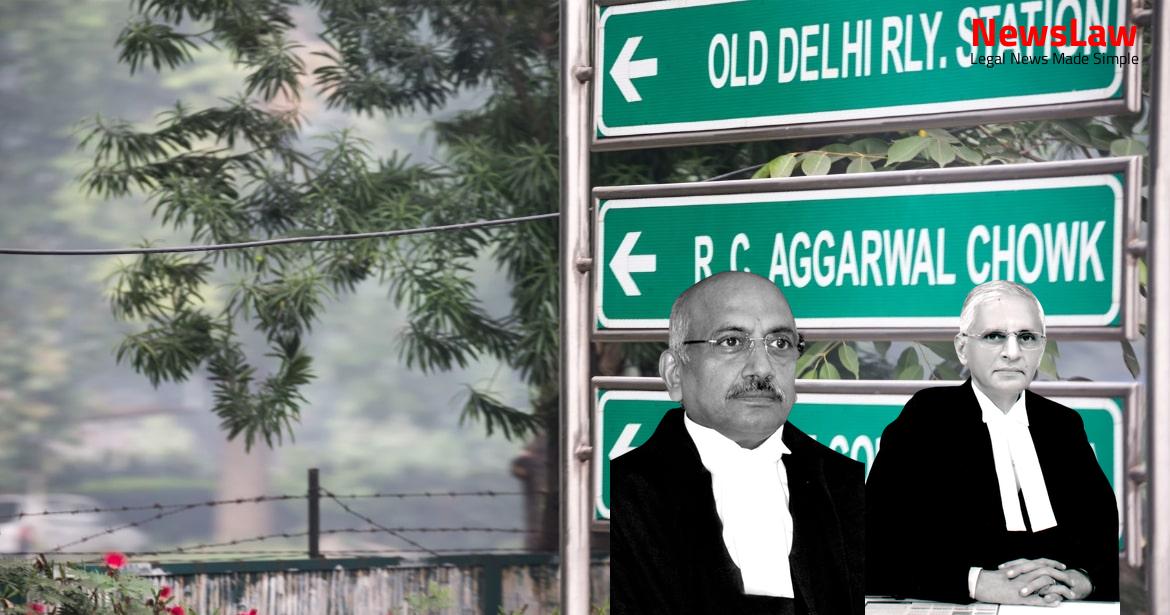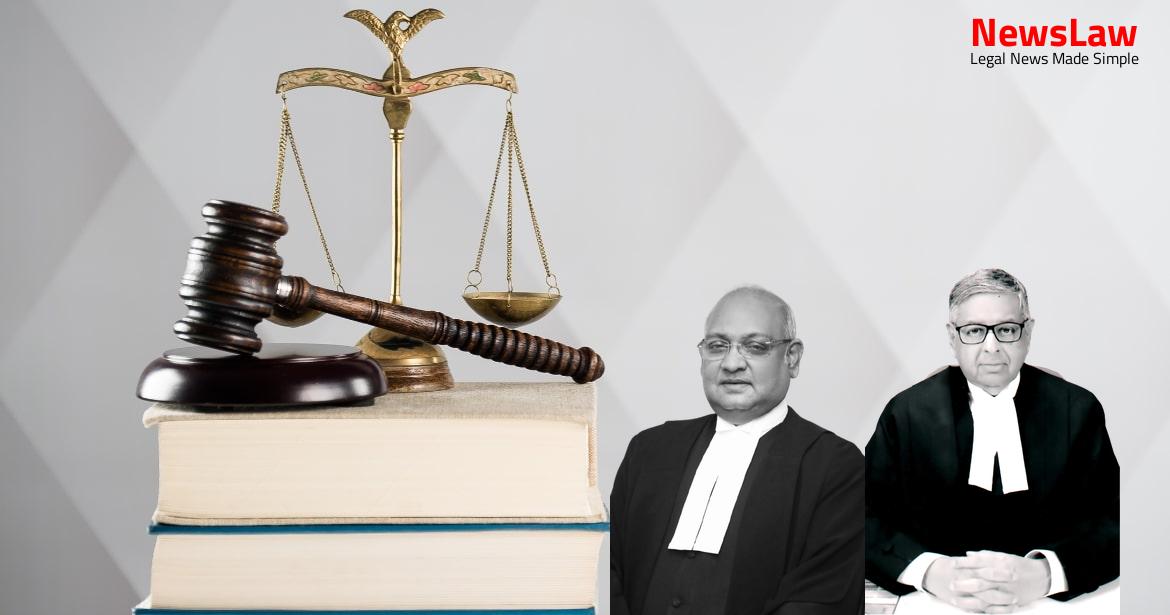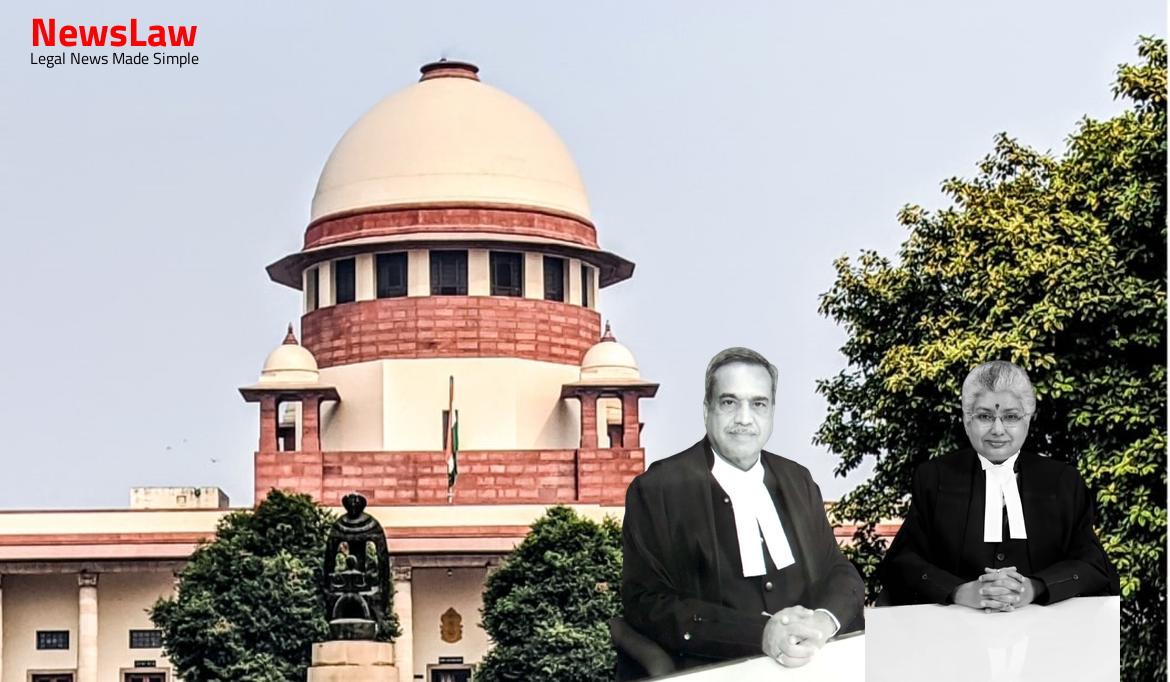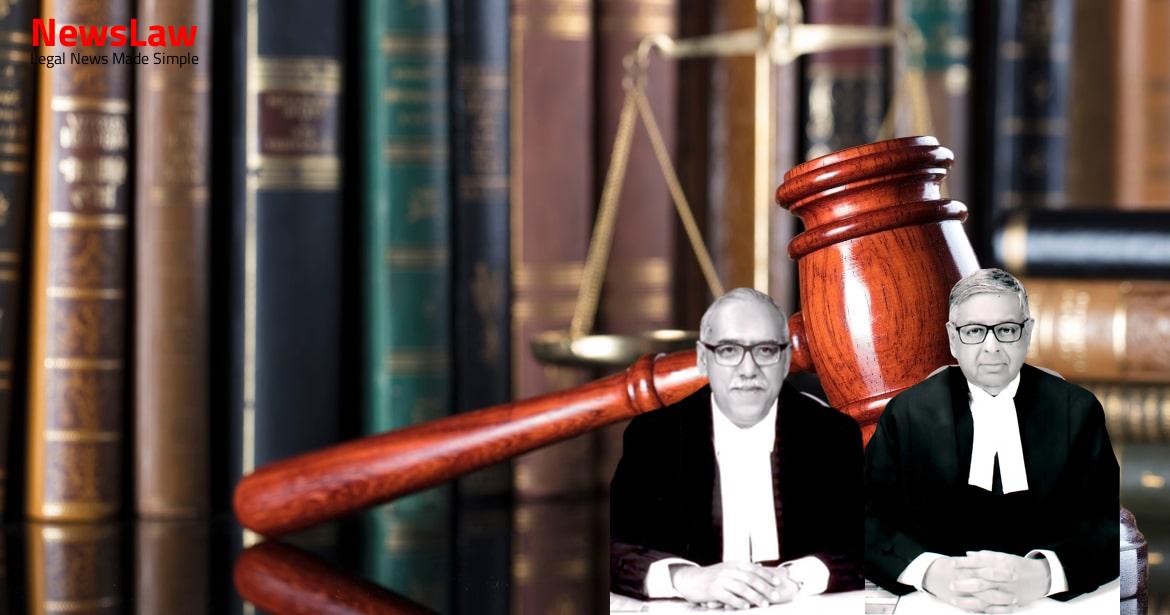The legal case delves into the complexity of jurisdictional issues when seeking relief under statutes. The court meticulously examines whether the civil court has the authority to entertain the suit or if the statutory provisions oust its jurisdiction. This summary focuses on the insightful legal analysis conducted by the court regarding the intricacies of statutory relief and the boundaries of civil court jurisdiction. Stay tuned for a detailed exploration of this critical legal matter.
Facts
- The respondent challenged the order of injunction by filing an appeal before the Lower Appellate Court under Section 96 (1) read with Order 43 Rule 1 of the Civil Procedure Code.
- The respondent raised the issue of jurisdiction for the civil court to entertain the suit in view of the provisions of the GMC Act.
- The trial court granted temporary injunction without reference to the objection regarding jurisdiction.
- The learned Munsif held that the civil court has jurisdiction to try the suit between the parties.
- The respondent contended that the issue of jurisdiction goes to the root of the case and should be decided before any other relief is considered.
- The Munsif concluded that the bar under the GMC Act does not apply to the relief prayed by the plaintiff.
- The civil court’s jurisdiction was held to be ousted by implication, allowing the party to seek relief under the GMC Act.
- The order dated 16.11.2013 was set aside, declaring the suit as not maintainable, with liberty for the appellant to address grievances under the GMC Act.
- Plaint in title suit No.334/2011 was ordered to be rejected.
- Appellant filed revision petition CRP No.260/2013 in Gauhati High Court against the order.
- The lower appellate court and the High Court agreed that the civil court’s jurisdiction was a preliminary issue to be decided.
- Lower appellate court remanded the matter to decide jurisdiction before considering any other relief.
Also Read: Analysis of Commencement Date in Gratuity Act Amendment Case
Arguments
- The appellant is aggrieved by the order passed by the Gauhati High Court and is appealing before this Court.
- The petitioner’s counsel argues that the lower appellate court and the High Court erred in concluding that the suit is not maintainable.
- The relief sought in the suit is regarding a drain on the western side of the properties to protect the right of free flow of water enjoyed since the property was purchased.
- Reference is made to Part VI of the Act to argue that only specific activities are barred from civil suits under section 322 and other provisions in Part VI.
- Section 341 of the GMC Act mentions a bar of jurisdiction but only for the relief under the specific part in question.
- The High Court’s reasoning to consider the case under Order VII Rule 11(d) of the Civil Procedure Code and bar the civil suit is deemed unjustified.
- The right to be protected falls within the jurisdiction of the civil court and there is no legal bar to approaching the civil court for the relief sought in the suit.
- The respondent argues that the GMC Act prohibits the civil court from handling matters related to facilities under the Act, which are to be overseen by the Commissioner.
- Even though section 341 of the GMC Act may restrict the civil court’s jurisdiction to Part VI only, sections 246, 247, and 248 provide property owners with a avenue to address issues related to drains by approaching the Commissioner for resolution.
- The respondent contends that any rights available to the plaintiff under the GMC Act can be utilized to support the relief sought, but do not serve as a prohibition against filing a suit.
- The respondent supports the High Court’s decision to invoke Order VII Rule 11(d) of the Civil Procedure Code, concluding that the civil court lacked jurisdiction to hear the case.
- The respondent believes that the order passed by the High Court is valid and the suit should not be allowed to proceed further.
Also Read: Interpretation of Will and Hindu Succession Act: Legal Analysis
Analysis
- The judgment discusses the jurisdictional question regarding the review of orders passed under statutes
- It distinguishes between common law rights and rights created by statutes affecting public interest
- The court examines whether the relief requested in the plaint falls within the domain of the GMC Act
- The provision of Section 341 of the GMC Act is cited regarding the bar of the civil court’s jurisdiction
- The distinction between grievances under statutes with and without internal remedies is highlighted
- The importance of forums and remedies provided by statutes for enforcing rights or protections is emphasized
- Case law examples are provided to illustrate when civil court jurisdiction is upheld despite statutory provisions
- The necessity of evidence to support claims in the case is underlined
- The summary addresses the nature of the suit, relief sought, and the applicable provisions under the GMC Act
- The Commissioner is empowered under GMC Act to compel the owner or joint owner of a drain to permit a person who is not the owner of such drain to use it
- The Commissioner has the authority to create a right in favor of a property owner to drain out water through a drain owned by another property owner
- The appellant in this case is not seeking the creation of such a right but is asserting and seeking to safeguard an existing right
- The appellant’s case revolves around a right that already exists and the desire to continue exercising that right
- The jurisdiction of Courts in civil suits is discussed, clarifying that suits contesting rights to property or office are considered civil suits, regardless of religious aspects or whether fees are attached to the office in question
- Provisions regarding the obligation of drain owners to allow others to use their drains and how a person can obtain the right to use a drain owned by someone else are outlined in sections 246, 247, and 248 of the GMC Act
- The court upheld the ouster of jurisdiction based on the adequacy of the remedy provided by the Act in question for rights and liabilities created by it.
- However, if a statute restricts a pre-existing common law right and excludes court jurisdiction for remedies, a more thorough examination is required.
- The court’s jurisdiction exclusion is subject to limitations: cases of non-compliance with the Act and tribunal not following judicial procedure principles.
- The extent of statutory tribunals’ exclusive powers depends on the statute’s purpose, general scheme, and the tribunal’s assigned scope of enquiry.
- In the past, rights and liabilities were mainly derived from common law sources, but now statutory laws also play a crucial role in determining legal rights.
- Relief in the suit is to be considered based on the evidence tendered
- Relief is not barred under any law
- High Court wrongly invoked Order VII Rule 11 (d) to reject the plaint
- No express or implied bar under any law in the instant facts
- Learned Munsif was justified in holding the suit maintainable
- Order of Gauhati High Court in CRP No.128/2014 set aside
- Properties of the appellant and defendant are contiguous with a drain on the western side of the appellant’s property
- The drain serves as a boundary and facilitates water flow into the GMC drain
Also Read: Legal Analysis of Pujaris’ Rights in Temple Land Ownership
Decision
- Parties to appear before the learned Munsif on 01.09.2021 as the first date for appearance without further notice.
- The suit will then be considered on its merits.
- Pending applications, if any, will be disposed of.
- The appeal is allowed with no order as to costs.
- The plaint in title suit No.334/2011 is restored to the file of the learned Munsif No.2 Kamrup Guwahati.
Case Title: RATUL MAHANTA Vs. NIRMALENDU SAHA (2021 INSC 390)
Case Number: C.A. No.-004627-004627 / 2021



